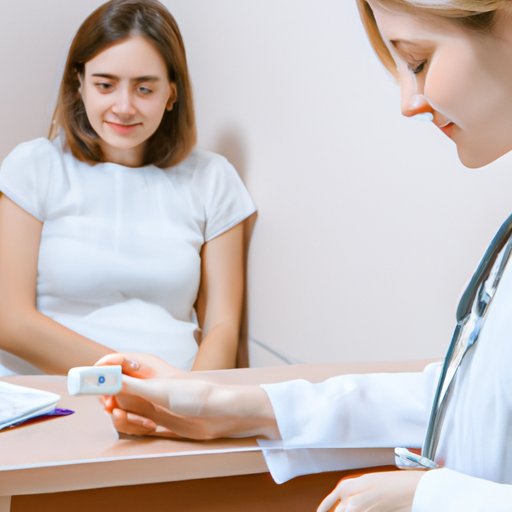Introduction
Pregnancy is a beautiful and exciting experience that has the potential to bring many joys into a person’s life. For many people, the moment of finding out that they are expecting a baby can be one of the most memorable moments of their lives. But before this moment comes, there are a lot of questions that need to be answered: How soon can I tell if I’m pregnant? What are the signs of early pregnancy? What tests should I take?
Symptoms of Early Pregnancy
The symptoms of early pregnancy vary from woman to woman. Some women may experience very few or no symptoms at all, while others may have more severe symptoms. Common changes in the body during early pregnancy include missed periods, fatigue, nausea, breast tenderness, and increased sensitivity to smells.
Common signs of early pregnancy include frequent urination, mood swings, food cravings, and feeling faint or dizzy. These signs are usually experienced within the first few weeks of conception, although some women may not experience any symptoms until later in their pregnancy.

How to Tell if You Are Pregnant as Early as Possible
There are several methods available for determining whether or not you are pregnant. The most common methods are home pregnancy tests, blood tests, and ultrasound scans. Home pregnancy tests work by detecting the presence of human chorionic gonadotropin (hCG) in urine. Blood tests are more accurate than home pregnancy tests and can detect hCG levels as early as six days after conception.
When taking a home pregnancy test, it is important to wait until your period is late before taking the test. This will ensure that the test is able to accurately detect the presence of hCG in the urine. It is also recommended that you take the test in the morning, as the concentration of hCG is highest in the morning.

Factors That Affect How Soon You Can Tell If You Are Pregnant
Hormonal fluctuations can affect how soon you can tell if you are pregnant. Every woman’s body is different, and the rate at which hCG is produced in the body varies from woman to woman. Other factors such as diet, lifestyle, and medical history can also affect how soon you can tell if you are pregnant.
Understanding the Accuracy of Early Pregnancy Tests
There are several types of pregnancy tests available, including home pregnancy tests, blood tests, and ultrasound scans. Home pregnancy tests are typically the least accurate and can give false positive or false negative results. Blood tests are more accurate, but may still give false positives or false negatives depending on the sensitivity of the test. Ultrasound scans are the most accurate form of testing and can detect a pregnancy as early as 5 weeks.
It is important to understand the accuracy of each type of test before deciding which one to use. Home pregnancy tests are the least accurate and should only be used as a preliminary test. Blood tests and ultrasound scans are more reliable, but should still be confirmed with a doctor’s visit.

Consulting Your Doctor for an Accurate Diagnosis
Even if you are certain that you are pregnant, it is important to visit your doctor to confirm the pregnancy. Your doctor will be able to provide you with an accurate diagnosis and advise you on the best course of action for your health and the health of your baby.
Visiting your doctor for a confirmed pregnancy diagnosis is beneficial for several reasons. Your doctor will be able to monitor your health throughout your pregnancy and provide any necessary care. Additionally, your doctor can provide advice on nutrition, exercise, and other lifestyle choices that can help keep you and your baby healthy.
Conclusion
Finding out that you are pregnant is an exciting experience and can be a life-changing event. Knowing the signs of early pregnancy and understanding how to tell if you are pregnant as early as possible can help you prepare for this new journey. There are a variety of tests available to determine if you are pregnant, but it is important to understand the accuracy of each test and when to seek medical advice.
If you think you may be pregnant, it is important to visit your doctor for an accurate diagnosis. Your doctor can provide invaluable advice and support throughout your pregnancy and can help ensure the health and safety of both you and your baby.
(Note: Is this article not meeting your expectations? Do you have knowledge or insights to share? Unlock new opportunities and expand your reach by joining our authors team. Click Registration to join us and share your expertise with our readers.)
